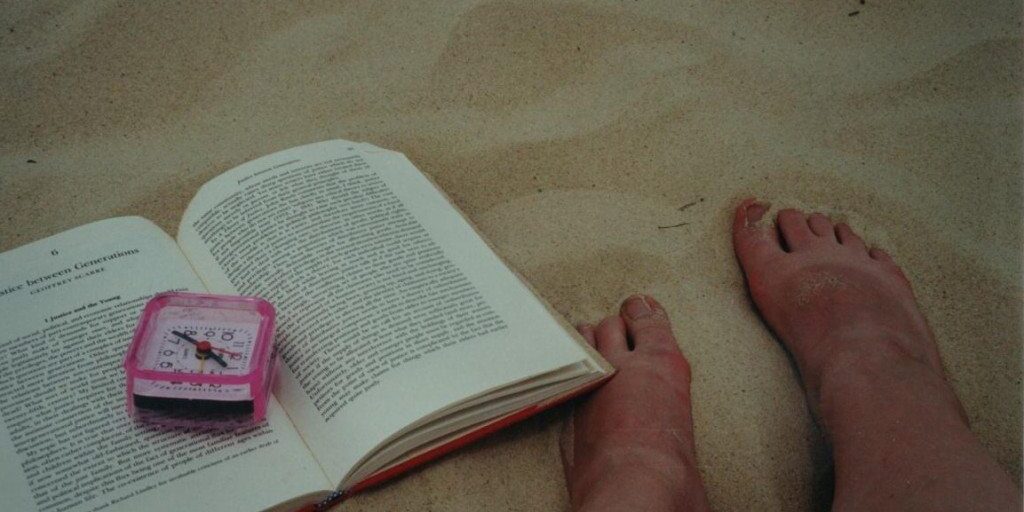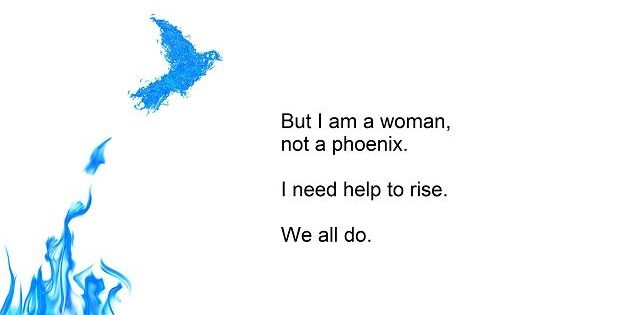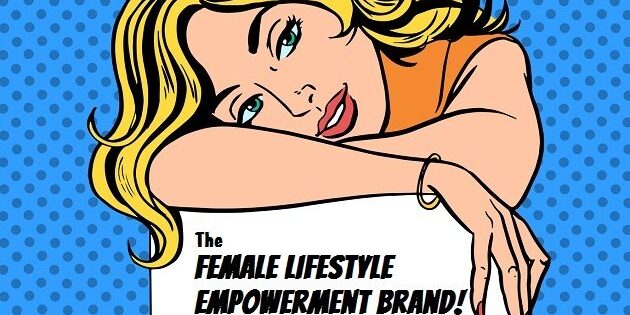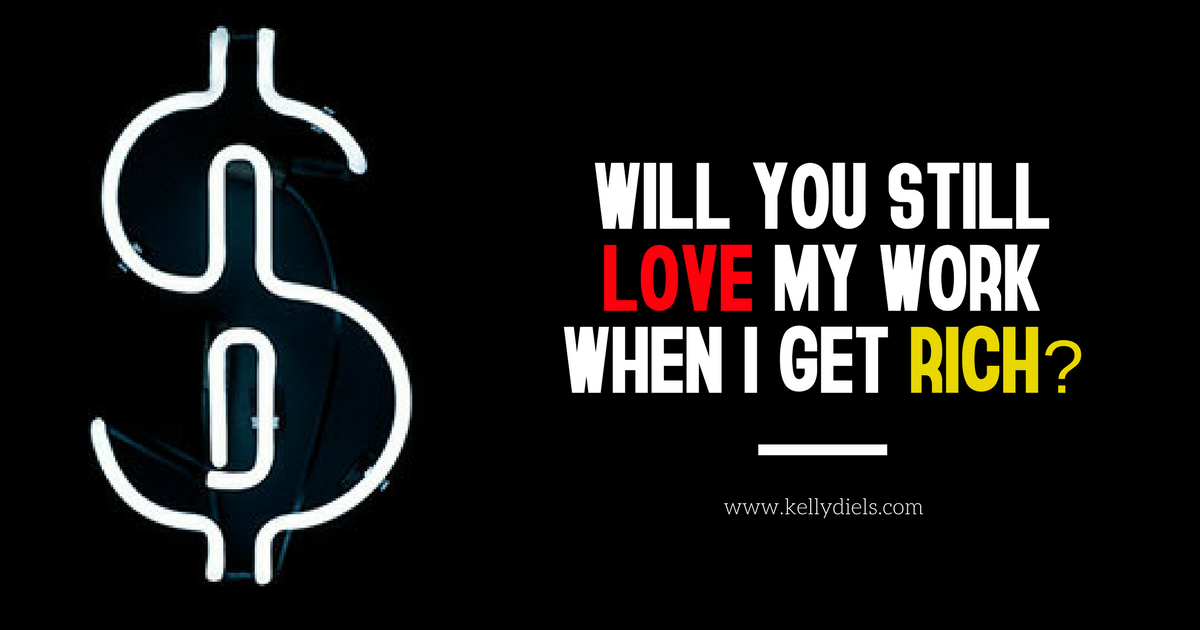
The Wealthy Feminist
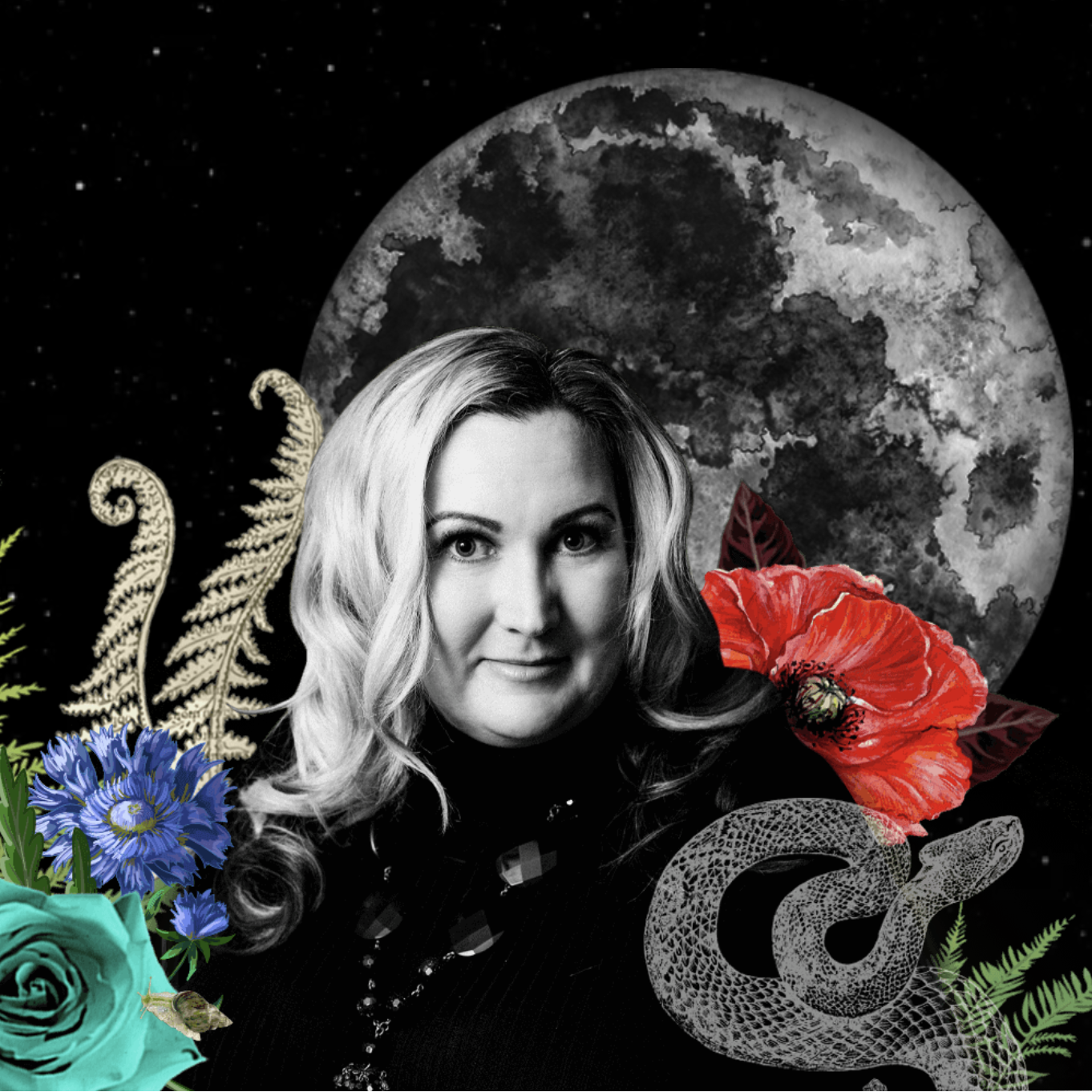
Can we talk about money?
I’ve read this 30+ year old article about Gloria Steinem’s once-precarious financial situation and her subsequent book deal several million times and that’s a conservative count.

I have chats with Letty Pogrebin and Gloria Steinem in my head. I have since I was 11 and borrowed every single issue of Ms Magazine I could find in the library. I was raised on Ms. Magazine. Ms Magazine co-parented me.
And then, in this LA Times piece, I learned that after decades of activism, service, culture-making and publishing, feminist icon Gloria Steinem had no money saved for retirement or emergencies. None.
Across her life, she’d taken care of people and causes she cared about, which meant her money disappeared as fast as she made it.
When I read that, I felt sick. I recognize this dilemma. Nearly every woman and femme I know lives in exactly this place. My mother-in-law, who is 92, has absolutely no savings, no income, and no assets because she spent her life in uncompensated service to her family. Not because of bad choices. Because of virtue and love and caregiving.
And now, in her time of need, her family is not taking care of her.
It is essential that women and femmes and marginalized peoples – the identities marked in our culture to be the uncompensated or wildly undercompensated labourers propping up our economies and families – accumulate savings, net worth, and wealth. Essential.
Because the social safety net is in tatters and no guarantee and neither, frankly, is love. You can love people all you want and take care of them and there is no guarantee that they will love you back if you’re diagnosed with cancer and can’t work or get Alzheimer’s and need 24/7 care.
This is not just about retirement, our elder years, surviving illnesses and emergencies and being deserving or in need. We don’t have to demonstrate overwhelming to need to deserve to have money and resources.
This notion of deserving is a value that supports patriarchy and white supremacy. I believe we’ve internalized the cultural assumption that because we are not straight white men, we’re defective – which means we’ve got to compensate for that defect with becoming The Perfect Woman and with our endless labour. We earn and deserve resources only if we’ve met that criterion.
No.
Let’s assume that every human on this earth is deserving of a flourishing, abundant life and livelihood and a positive net worth. That’s our foundational notion.
When it comes to money, earning, wealth and net worth, let’s take ‘deserving’ and ‘worth it’ out of the equation.
Taking deserving out of it will remove the ability to question whether poor people are getting what they deserve (and the subconscious assumption, in our wealth-revering culture, that yes they deserve to be poor).
(It will also remove the conclusion that no one person deserves “that much” — which perhaps might be harder to swallow.)
Now let’s come back to Gloria Steinem. Shortly after 50, she realized she could easily slip into desperate times:
But suddenly Steinem took a hard look at her own future. After 15 years of working on a magazine that regularly admonishes women to plan for their later years, Steinem abruptly realized that “I hadn’t saved anything, so that if I were ill, or aging, or whatever, I wouldn’t be able to last for more than a month or two.”
More succinctly, Pogrebin said, “She is 53 years old and she has put away no money, and she is being silly about her life.” – Elizabeth Mehren, writing for the LA Times
To resolve this looming crisis, she and Letty Pogrebin decided to secure her a significant book deal so that she’d have a retirement fund.
And because she’s Gloria Fucking Steinem and her name and fame will move a lot of copies, publishers went into a three-day bidding war for her two books.
Shen ended up with a $1.2 million dollar advance.
Yes!!
I thrill. I cheer.
At no point did I ask myself does Gloria Steinem deserve $1.2 million dollars?
Maybe it’s because I love her and she’s given me a life of service and I want her to have a million bucks.
Maybe it’s because I know that if two publishers are willing to pony up that kind of advance, they’ll be making way more off of it in sales, so the value is more than established.
Maybe because it’s only going to cost me $25 per book so it’s no skin off my nose.
It’s probably all of those things.
And those things — the notion of deserving and the asymmetry between what I’ve received (a lot) and what I’m willing to contribute (little) — are a problem.
If I’m only willing to allow Gloria Steinem, the feminist culture-maker who changed my life, a positive net worth if I don’t have to contribute very much…
If I’m only willing compensate Gloria Steinem $50 for everything she’s given me across my life…
I may want to check myself for both internalized patriarchy – there’s perhaps something ingrained inside of me that says she’s supposed to labour uncompensated for her entire life to advance our collective well-being — and personal entitlement.
I digress.
But not really.
This plays out on a daily basis in my virtual world. I see black women and women of colour and queer folks and disabled folks (and, and, and) labouring uncompensated in comment threads and FB groups in order to change our culture.
So I was thrilled to see The Safety Pin Box develop a product/service that turns this historical and present racial dynamic on its head.
I love seeing Didi Delgado and Fiyah Angelou create pay-me and direct action threads to transfer direct cash infusions to people of colour — including themselves — can decide how to use that money rather than to organizations who decide for them.
I was over the moon when I read that Gloria Steinem got a $1.2 million dollar advance.
I was all a-flutter when I read that Soraya Chemaly got a “significant” book deal for Rage Becomes Her. Significant is publishing code for “she got a huge advance AND the publisher will be investing in public relations and setting up a serious book launch” (they only do that for a handful of books on their roster). That, in turn, means she’ll sell more books and hopefully break through into our mainstream cultural consciousness. And YES PLEASE.
I was delighted when Danielle LaPorte got her Firestarter book deal.
I was am happy that Laura Roeder launched Meet Edgar and has since turned it into a thriving, 60-person company.
It rocked my world when Ijeoma Oluo showed us a screen shot of the cover of her first book.
I have loved seeing Lindy West fill rooms on her book tour and secure national columns and op-eds in prestigious publications.
I have been thrilled to see Tara Gentile rise.
When Suzanne Siemens and Madeleine Shaw of LunaPads in Vancouver described surpassing the million dollar mark in their company; getting a round of investment that allowed them to expand their inclusive workforce to 13 people; and securing placements in big-box stores, I was elated.
I felt personally rewarded when Bethenny Frankel finally made a gazillion dollars off SkinnyGirl – even though I hate the fat phobic premis and cultural mandate of SkinnyGirl. Still, I watch RHONY and after years of rooting for her and seeing incremental growth, witnessing her success and payoff felt like I won too. (This dissipated, instantly, when she told a room full of black women entrepreneurs to hide their identities in their business and let a white male employee be the face of their companies.)
I have watched with awe and delight as Kimberly Foster grew For Harriet into a balm and a beacon, built a national community, and secured a book deal.
Janet Mock’s success makes my heart soar, too.
I am off the charts excited that Oprah has the clout and resources to found a magazine and a cable network. I am grateful that in 2007, for the first time in her career, she publicly endorsed a presidential candidate: Barack Obama. It made a difference in the election. I love that she started a book club and launched the careers and seeded, with her reach, the financial abundance of hundreds of authors. I do not love the Weight Watchers deal and, like so many other people I otherwise admire, I wish she’d get her fatphobia sorted. I do, however, love that she’s producing Queen Sugar and financially underwriting Ava DuVernay’s culture-making contributions to our world.
Shonda Rhimes owns Thursday night and her recent outrageously lucrative deal with Netflix practically gave me an orgasm.
Now, admittedly, there’s still a piece of me saying, “I appreciate their work and their contribution so they’re deserving”. (Personally and politically, I want to unlearn and quiet that voice so I’m just noticing and observing it right now.)
But at no point have I ever thought that any of these women made too much money or could make too much money.
When Gloria Steinem got $1.2 million advance, I didn’t think “well that was too much”.
I thought YES, now we’re getting somewhere.
I hope Shonda Rhimes got a kazillion dollars from Netflix.
The more wealth and clout these culture-makers consolidate, the more likely they are to be able to sustain themselves. The more likely they are to be able to take on even more ambitious, culture-making projects. The more likely they are to be able to reach more people. The more likely they are to be able to invest in more projects, hire more people, cultivate more careers and talents. The more change they can create.
I am invested in their rise. Their rise benefits me, too.
And here’s the thing: none of them could have done that without us.
Shonda Rhimes doesn’t own Thursday night unless we’re all watching Grey’s and How to Get Away With Murder and Desiree Adaway is live-tweeting and FB-ing Scandal. And if we’re not watching, there’s no Netflix deal. If there’s no Netflix deal, there are fewer queer characters and people of colour on mainstream and prestige TV. And without these characters living their lives as people in their own rights, rather than as sidekicks and foils to the white male lead, the norms of our socially segregrated culture stay firmly in place.
I’m not saying the shows of Shonda Rhimes, in and of themselves, will end structural racism and patriarchy. But they are contributing to the cause we’re all working on, together.
I think of our oppressive culture, the one we’re trying to change, like a massive, thousand foot cement wall. Or maybe like a Game of Thrones ice wall.
I’m not a rock climber. I’m not a soldier. I’m not an engineer. I don’t own any sticks of dynamite. The usual methods for getting over that wall or blowing it up are not available to me.
But I do have tools. I do have something to contribute.
I can use my chisel (my writing, my connecting-the-dots analysis, my feminist marketing consulting work with clients).
I can pick my spot on the wall (the intersection between culture and marketing aka The Female Lifestyle Empowerment Brand and Culture-Making).
And I can show up at my spot on the wall every single day. I can take my chisel and pick away at the same spot over and over again.
Now, if I am doing this by myself, I am doomed to failure. I might make a tiny, tidy hole but that thousand foot wall will not come down because of my committed chiseling, alone.
But I am not alone.
Other people are showing up with their tools and taking their spots on the wall…
Some people are showing up with barbecues and bread. Some people are twisting balloon animals for the kids (and for the kid in me, ‘cuz I love a good fete). Musicians are keeping us all lifted and inspired and soothing us when we’re tired. The massage therapists are kneading sore muscles and preventing injuries. There are people singing and stilt-walking. There artists painting what it looks like on the other side of the wall – we can’t imagine, but they can, and that keeps us going — and painting all of us so we don’t forget. There are people setting up tents and others making sure the elders are laughing and loved and taking their meds on time. The accountants are making sure we’ve got coins in the coffers for the next supply deliveries. Someone’s coordinating those deliveries and logistics and making sure we’ve got enough portapotties.
We all have a place at the wall.
We need each other to take it down.
We don’t just need chisels and writers and network owners and talk show hosts and venture capitalists. We need food and love and logistics and music and water and caregiving and vision and commitment.
And portapotties.
And money.
(Portapotties cost money.)
You can only take your place at the wall, the bbq, the canvas, the daycare, if you are materially sustained. You can only donate your cash to the cause if you’ve got it. You can only amplify the voices of others if people are already accustomed to hearing yours. You can only found a magazine if you’ve got some combination of clout, capital and community. You cannot buy a TV network or get a massive TV deal on pure intentions. You’ve got to have resources, reach and leverage.
You should not have to retire on an empty bank account.
You should not have to survive a family emergency or a life-altering illness without resources or emerge from it with hundreds of thousands of dollars of medical debt.
Let’s come back to Gloria Steinem. Her fame and influence was an unmonetized asset. When she realized she could be in serious jeopardy in her elder years, she had something she could turn into cash. A lot of cash. And she did. And I’m thrilled. I hope she made even more on the books that came afterwards.
My mother-in-law, however, like most marginalized folks, does not have fame or influence that she can monetize.
Most of us do not have fame or influence we can monetize at the last minute to save ourselves.
So we’ve got to get our hands on the money — more than we need, right now — every week and every month. We’ve got to increase our incomes and cash flows beyond our break-even points, and invest it in personal assets and in our community.
A lot of women I know have huge overheads – energetic and financial — because we’re supporting not only ourselves, but also our children, our elders, extended family, community and causes.
So when I see a woman or femme making bank, I’m not ever going to impose a limit to what she ought to make. There’s no such thing as too much.
ESPECIALLY if the radical excess means she can buy a television fucking network.
Or get a massive deal to produce shows that change our culture (TV is a culture-maker).
What I believe we should pay attention to, however, is how those profits are generated. Are the labour practices within her business just? What is her social impact?
I’ve seen a Female Lifestyle Empowerment Brand, for example, trumpet her $1.2 million dollar launch and teach us in a free call how to do what she did.
Here’s what she did: gathered a dozen or so copywriters, social media experts, photographers and graphic designers and hired them as unpaid interns. They developed her program and marketing materials. She didn’t have to pay the up-front start-up labour costs and she pocketed all the profit.
This bootstrapping strategy — using the bootstraps of others — may have been a result of not having access to capital. That gets shaped up systemically and needs to be acknowledged. Even so, her profit, as an empowerer-of-women, was made off the uncompensated labour of other women.
If she’d said, in that free call, “and then I paid out $X in delayed salaries and equity on the backend to my interns who developed the program,” she’d be navigating the systemic limits imposed on her and creating profit without downloading the costs to less privileged women.
Maybe she did that. She didn’t say she did. Instead, she advised other women entrepreneurs to hire uncompensated interns to develop programs and launches in order to create million dollar profits for themselves.
I don’t have any problem with her making a million bucks. I have a problem with how she’s making it, her social impact, and how she’s teaching us to make it.
Her example is useful, however, because it prompted me to make a few commitments of my own (you can see more about my feminist businesses practices, here):
- I decided to never use volunteer or uncompensated labour in my for-profit business. That’s not an accomplishment. It’s simply picking the bar that was set so low off the floor.
- I decided to never pay less than $30 USD an hour for any task in my business. The average rate for a part-time teaching assistant at university in the United States, for example, is $11-15 per hour. I don’t have the endowments, government transfers or donations or student numbers that universities do, but I pay teaching assistants $30 USD per hour. Again, this is not an accomplishment. It’s again picking the bar up off the floor.
- I decided to incorporate and formalize my business and start generating profit rather than ‘just enough’ to cover my own costs. My goal is for my company to create the capital and cash flow to hire some full-time employees (rather than only hiring contractors) at substantial salaries and provide paid leaves, medical insurance and extended health plans.
- I decided to change my business model, launch ONE big group program, once a year; and significantly increase my 1:1 rates so that I’m not constantly launching and I don’t have to work seven days a week (!!!). This is a more feminist, humane way to live. I cannot be a caregiver or a lover or a mother or a friend on my previous hourly rate and exhausting workload.
- I decided to price for profit so that I can generate capital to finance new projects. I decided to seek credit (previously, and currently, I’m running my business without any credit, on pure cash). Profit means that banks will extend business lines of credit to my company. Cash flow is a constant problem and a massive limitation in my business – and because I’m not ever going to offload my start-up costs onto unpaid interns, I’m going to need credit + capital to even out my cash flow roller coaster to invest in my own business. No credit, no capital, no ambitious culture-making projects. And capital comes from profit and profit comes from higher rates.
- I decided to seek out mentorship from more established CEOs, executives and culture-makers. Like everything else on this list, this is a work in progress. I am not new to marketing or hustling or making money on the fly but I am new to building a significant social enterprise. I need advice from the other side. I need to know how to build an inclusive workplace culture because it’s for damn sure that I haven’t absorbed that from the society we live in. I need to know how to finance my business. I need to know how to select and buy medical plans. I need to know all of the things I don’t intuitively know how to do as I transition from freelancer to CEO.
- I decided to create personal net worth (side note: I never really understood net worth works and how to create it until I read Worth It by Amanda Steinberg.) I need to pay myself more than I need to survive – and because of the size of my family and their ages, I need a LOT just to get by. I need to generate personal savings and net worth. I have five children including a toddler who requires daycare and a frail elder who also requires daycare and very expensive medicines to take care of and I am their sole provider. My monthly cash flow looks like a hemorrhage and I have no savings. What happened to my mother-in-law could happen to me. I am one car accident or diagnosis away from financial ruin and decades of impoverishment and so is my family. And I may never be Gloria Steinem. I might not be able to save myself with one massive book deal. So I’ve got to start saving myself, month by month, right now. I’m doing that by thinking bigger, being more ambitious and realistic about money – both personally and in my company — formalizing my company, deliberately seeking to move beyond subsistence and generate significant profit and capital, seeking credit, and raising my rates to accommodate all of that.
In other words, I decided to generate positive cash flow and net worth in my business and in my personal life. I am striving, imperfectly and in a rapid learning curve, to do that while also creating abundance and safety for the people who choose to work with me.
I do have a fear that people looking on might say “Oh look at her, she criticizes The Female Lifestyle Empowerment Brand, and here she is trying to get rich and famous, just like a Female Lifestyle Empowerment Brand.”
But most of that is a fear of being misunderstood on a superficial, optical level by people who are not invested in this as a shared project or who actively oppose it.
Some opposition, especially more root-level critiques about the nature of capitalism and extreme wealth, however, is going to be legitimate and I’m going to have to navigate and integrate those and continually evolve my thinking and practices across my career.
A reading of my work will show that riches and fame is not my beef with The Female Lifestyle Empowerment Brand.
White supremacy has been my issue. Post-feminism has been my issue. Gender essentialism has been my issue. Fatphobia has been my issue. Charging 20%.25%, 39% and 66% for payment plans – in other words, charging the people least able to pay MORE for your services – and turning payment plans into an additional profit centers has been my issues. Using social triggers in high risk transactions has been my issue. Manufacturing authority over marginalized peoples has been my issue. Lack of social leadership while profiting from being perceived as a social leader has been my issue. Silence or inconsistent attention on social issues has been my issue. Lack of inclusion has been my issue. Uncompensated labour has been my issue. These are the things I’ve specifically critiqued and asked all of us to take explicit responsibility for, so that the voice of our oppressive culture doesn’t work through us and our marketing and our businesses without our consent.
Creating profit, wealth, net worth, fame, influence or success has never been the source of my critique of The Female Lifestyle Empowerment Brand.
My critique is about the impact and the methods by which that wealth and influence are generated. The labour practices, the social triggers in high-risk transactions, the predatory payment plans, the lack of substantial social leadership while positioning the brand persona as a changemaker, the leveraging of white privilege and patriarchy to create authority over other women – and the hypocrisy of calling all of that same ol’ same ol’ change and empowerment. Those are my targets.
Not the wealth. Not the fame. Not the influence.
The methods. The impact.
I think we’ve probably got to interrupt the notion about virtue and compensation that says if we’re doing good work in the world, we ought not be concerned with generating profit and capital.
Good work doesn’t get funded without capital.
We’ve got to invest in people on the way up and hire them when they’re hungry, not just celebrate them once they’ve arrived.
I don’t wish Female Lifestyle Empowerment Brands would make less money or be less influential. I wish they would change their business and marketing practices to be even more influential in creating change and helping us take down the wall.
I wish they’d take their place on the wall instead of being the wall.
But I’m not going to simply wish that those of us working on the wall – including me — had more resources to sustain ourselves.
I am going to generate those resources for myself, my company, my employees, my family, and my community and materially support the efforts of everyone else at the wall as they do that too.
I am going to report back from the wall.
I am going to share my learnings about how to generate the resources to sustain ourselves at the wall.
And I want you to know that you do have something to contribute.
The thing you do: painting, massage, coaching, making vegan cosmetics, writing TV shows, live-tweeting Scandal and live-tweeting presidential debates…
..it is not frivolous. It IS a contribution to change.
We need everyone at the wall. The FB posters. The writers. The jugglers. The chefs. The painters.
We need all our collective gifts and talents and contributions and we need money and resources.
The more resources we have, personally and collectively, the more we can leverage them to create change.
Not everyone wants to play on the national stage. That’s not the only form of success.
But let us not impose the limits of ‘deserving’ or ‘too much’ on the ability of our colleagues and culture-makers and fellow travelers to access and generate resources, wealth and influence.
Instead, let’s hold them accountable for how they generate it and their social impact.
Their success and impact is our success and impact. It doesn’t exist without us.
There’s no Oprah Show if we’re not watching it.
There’s no President Barack Obama if you don’t vote for him.
There’s no Ms Magazine if we don’t read it.
I don’t have a partner without my mother-in-law birthing him and raising him.
I am so glad Gloria had her friend and collaborator to push her to seek a seven figure book deal and steward the deal.
I am striving to be the Letty to my mother-in-law’s unsung, unknown Gloria.
We need to do that, personally and collectively.
The most vulnerable amongst us are single women and femmes, single women with children and single elderly women. No one in this world has their back and our social safety nets are so small and provisional that they will not catch us.
It is an act of personal power and a counter-cultural move to preserve ourselves as financially independent women.
Flourishing is feminist.
As long as we make sure the methods by which we’re generating net worth are just and generative, we take nothing away from anyone by having revenue, money in the bank, and assets.
In fact, we become assets and resources ourselves.
Every community developer knows that to improve conditions, you ensure women have education and money.
Non-profits and even governments – even my own Canada – who offer direct transfers to families deliberately choose to deliver those monies to women, because women use those resources on behalf of their families and children.
Imagine if women and femmes and queer folks and disabled folks and people of colour, as a collective, had abundant resources and finances. Imagine what we could do for ourselves and each other.
I believe one of the pillars of our just future is creating the skills and capacities and social conditions and policies we need to ensure our own financial sustainability and abundance. We cannot share or invest what we do not have.
We need those resources and we need each other at the wall.
So let’s get them. And let’s gather.
Because that wall is coming down.
And together we rise.
#WeAreTheCultureMakers #feministmarketing

